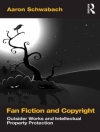Even more than thirty years after the dissolution of the Soviet Union, the role of the secret police in shaping culture and society in communist USSR has been difficult to study, and defies our complete understanding. In the last decade, the opening of non-Russian KGB archives, notably in Ukraine after 2015, has allowed scholars to explore state security organizations in ways not previously possible. Moving beyond well-known cases of high-profile espionage and repression, this study is the first to showcase research from a wide range of secret police archives in former Soviet republics and the countries of the former Soviet bloc—some of which are rapidly closing or becoming inaccessible once again. Rather than focusing on Soviet leadership, <i>The Secret Police and the Soviet System </i>integrates the secret police into studies of information, technology, economics, art, and ideology<i>. </i>The result is a state-of-the-art portrait of one of the world’s most notorious institutions, the legacies of which are directly relevant for understanding Vladimir Putin’s Russia today.
Giới thiệu về tác giả
<b>Michael David-Fox</b> is professor at the Edmund A. Walsh School of Foreign Service and the Department of History, Georgetown University. He is the author of <i>Crossing Borders: Modernity, Ideology, and Culture in Russia and the Soviet Union; Showcasing the Great Experiment: Cultural Diplomacy and Western Visitors to the Soviet Union, 1921–1941; </i>and <i>Revolution of the Mind: Higher Learning among the Bolsheviks, 1918–1929.</i> David-Fox is also coeditor of <i>Fascination and Enmity: Russia and Germany as Entangled Histories, 1914–1945</i> and <i>The Holocaust in the East: Local Perpetrators and Soviet Responses.</i>












